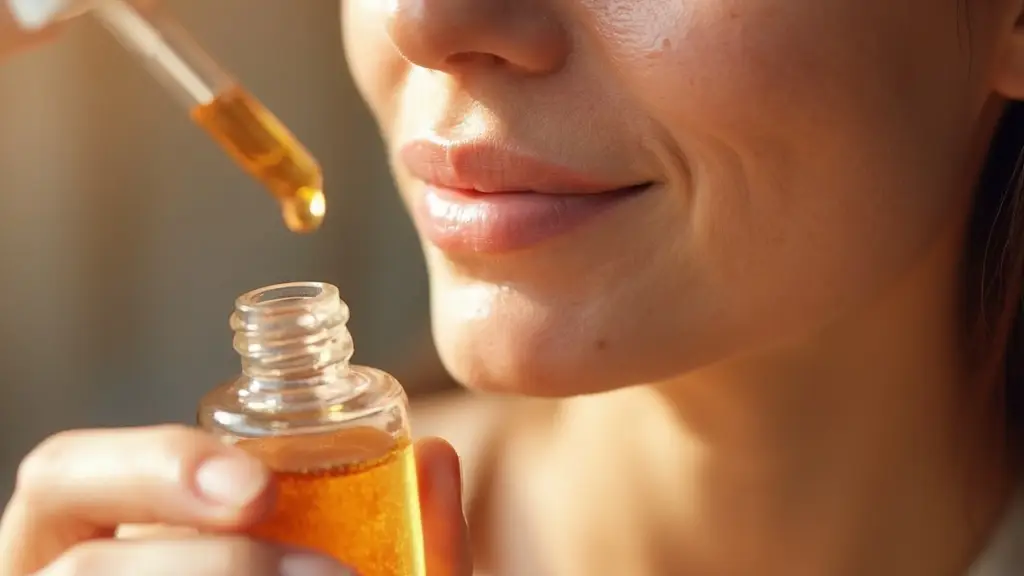Retinol, a powerhouse ingredient in skincare, has revolutionized anti-aging treatments. But how exactly does this vitamin A derivative work its magic on our skin? From boosting collagen production to increasing cell turnover, retinol’s multifaceted approach to skin rejuvenation has made it a staple in many beauty routines.
Let’s break it down, shall we?
What’s the Deal with Retinol?
Retinol is like that overachiever in high school – it does a bit of everything.
It’s a form of vitamin A that’s become a holy grail in skincare.
Why? Because it tackles wrinkles, acne, and dull skin all at once.
Pretty neat, right?
How Retinol Works Its Magic
Okay, so here’s the scoop:
- Retinol dives deep into your skin.
- It hangs out in the dermis (that’s the lower layer of your skin).
- There, it throws a party and invites collagen and elastin to join in.
- These proteins are like the bouncers of your skin – they keep things tight and smooth.
- Retinol also speeds up cell turnover, kicking out the old, dull cells.
It’s like a spring cleaning for your face!
The Perks of Putting Retinol on Your Face
Using retinol is like hitting the jackpot for your skin:
- Bye-bye, fine lines and wrinkles
- Hello, smooth texture
- Acne? What acne?
- Dark spots start to fade
- Your skin gets that “I drink 8 glasses of water and sleep 9 hours” glow
Starting Your Retinol Journey
Now, don’t go slathering it all over just yet. Here’s how to ease in:
- Start with a low concentration (like 0.01% or 0.03%).
- Use it once or twice a week at night.
- Apply a pea-sized amount to your whole face.
- Avoid your eyes and mouth – they’re sensitive!
- Gradually increase how often you use it.
Remember, slow and steady wins the race!
When Retinol Gets Real: Side Effects
I won’t sugarcoat it – retinol can have some side effects:
- Your skin might get a bit red or irritated
- Dryness and flaking can happen
- You might feel extra sensitive to the sun
But don’t freak out! These usually calm down as your skin gets used to it.
Retinol for Every Skin Type
Good news! There’s a retinol out there for everyone:
- Dry skin? Look for retinol with hydrating ingredients.
- Sensitive skin? Go for the gentlest formulas.
- Oily or acne-prone? You might tolerate stronger retinols better.
Mixing It Up: Retinol and Other Skincare Faves
Retinol plays well with others, but be careful:
- Hyaluronic acid? Great combo for hydration.
- Vitamin C? Use them at different times of day.
- Exfoliants? Easy there – don’t overdo it.
Busting Retinol Myths
Let’s clear up some confusion:
- Retinol doesn’t thin your skin – it actually thickens it!
- You can use it in summer (just wear sunscreen).
- It’s not just for wrinkles – even 20-somethings can benefit.
When to Call in the Pros
If you’re feeling lost in the retinol jungle, don’t hesitate to chat with a dermatologist.
They can help you find the perfect retinol match for your skin.
Wrapping It Up
Retinol is like that friend who always has your back.
It works hard to keep your skin looking its best.
Start slow, be patient, and your skin will thank you!
FAQs: Your Burning Retinol Questions
Q: How long until I see results?
A: Give it at least 12 weeks. Good things come to those who wait!
Q: Can I use retinol if I’m pregnant?
A: Nope, best to skip it during pregnancy and breastfeeding.
Q: Will retinol make me break out at first?
A: You might experience some “purging,” but it should clear up soon.
Q: Can I use retinol every night?
A: Eventually, yes! But start slow and work your way up.
Q: Do I need to use sunscreen with retinol?
A: Absolutely! Retinol can make your skin more sun-sensitive.
There you have it – your crash course in retinol! Ready to give it a try?


